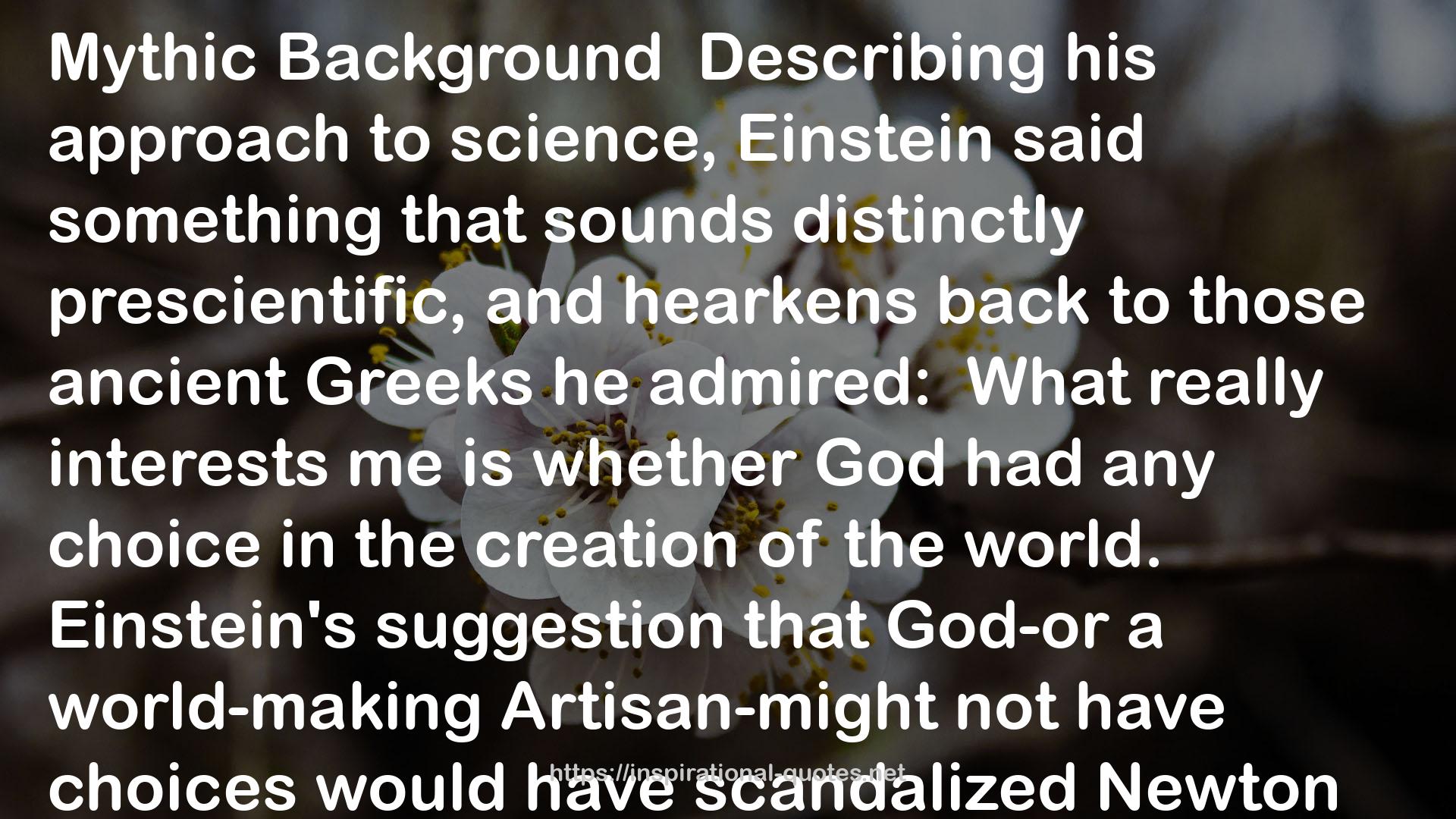" Mythic Background
Describing his approach to science, Einstein said something that sounds distinctly prescientific, and hearkens back to those ancient Greeks he admired:
What really interests me is whether God had any choice in the creation of the world.
Einstein's suggestion that God-or a world-making Artisan-might not have choices would have scandalized Newton or Maxwell. It fits very well, however, with the Pythagorean search for universal harmony, or with Plato's concept of a changeless Ideal.
If the Artisan had no choice: Why not? What might constrain a world-making Artisan?
One possibility arises if the Artisan is at heart an artist. Then the constraint is desire for beauty. I'd like to (and do) infer that Einstein thought along the line of our Question-Does the world embody beautiful ideas?-and put his faith in the answer "yes!"
Beauty is a vague concept. But so, to begin with, were concepts like "force" and "energy." Through dialogue with Nature, scientists learned to refine the meaning of "force" and "energy," to bring their use into line with important aspects of reality.
So too, by studying the Artisan's handiwork, we evolve refined concepts of "symmetry," and ultimately of "beauty"-concepts that reflect important aspects of reality, while remaining true to the spirit of their use in common language. "
Image for Quotes

Beauty is a vague concept. But so, to begin with, were concepts like "force" and "energy." Through dialogue with Nature, scientists learned to refine the meaning of "force" and "energy," to bring their use into line with important aspects of reality.
So too, by studying the Artisan's handiwork, we evolve refined concepts of "symmetry," and ultimately of "beauty"-concepts that reflect important aspects of reality, while remaining true to the spirit of their use in common language." style="width:100%;margin:20px 0;"/>